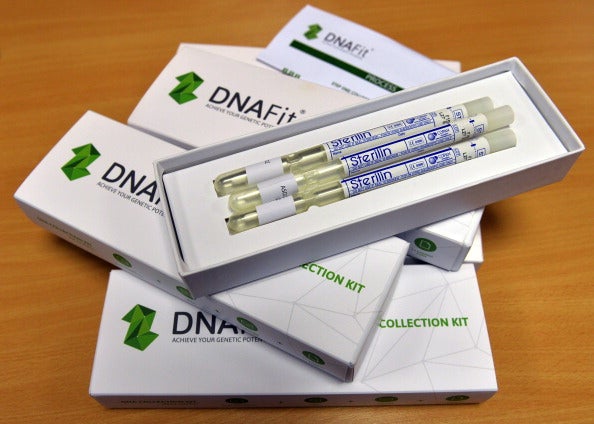US military instructed not to use DNA testing kits over concerns of ‘mass surveillance’
Pentagon cites 'increased concern' of companies 'exploiting the use of genetic materials for questionable purposes'

Your support helps us to tell the story
From reproductive rights to climate change to Big Tech, The Independent is on the ground when the story is developing. Whether it's investigating the financials of Elon Musk's pro-Trump PAC or producing our latest documentary, 'The A Word', which shines a light on the American women fighting for reproductive rights, we know how important it is to parse out the facts from the messaging.
At such a critical moment in US history, we need reporters on the ground. Your donation allows us to keep sending journalists to speak to both sides of the story.
The Independent is trusted by Americans across the entire political spectrum. And unlike many other quality news outlets, we choose not to lock Americans out of our reporting and analysis with paywalls. We believe quality journalism should be available to everyone, paid for by those who can afford it.
Your support makes all the difference.The Pentagon has reportedly instructed members of the US military to avoid using at-home DNA testing kits, citing concerns of mass surveillance and the potential for private companies to “exploit genetic materials for questionable purposes”.
In a memo issued to the armed forces on Friday, senior officials at the US defence department noted how such tests “have varying levels of validity, and many are not reviewed by the Food and Drug Administration before they are offered”.
“Moreover, there is increased concern in the scientific community that outside parties are exploiting the use of genetic materials for questionable purposes, including mass surveillance and the ability to track individuals without their authorization or awareness”, read the memo, obtained by Yahoo News.
DNA testing kits have grown increasingly popular over the years, despite concerns that the companies behind the products can sell an individual’s most personal information to third parties.
Recent estimates indicate over 26 million people have used at-home testing kits, with as many consumers purchasing the DNA tests in 2018 as all previous years the products were on the market combined, according to MIT Technology Review.
Companies such as Ancestry.com and 23 and Me have previously denied sharing private information with third parties without first requesting explicit consent from consumers.
The Pentagon memo was written by Joseph Kernan, the under secretary of defence for intelligence, and James Stewart, the acting under secretary of defence for personnel and readiness. It came just days before the Christmas holidays, in which many at-home DNA tests will likely be given as gifts across the United States.
“Exposing sensitive genetic information to outside parties poses personal and operational risks to Service members”, the memo reportedly read.
It continued: “These [direct-to-consumer] genetic tests are largely unregulated and could expose personal and genetic information, and potentially create unintended security consequences and increased risk to the joint force and mission.”
It was not immediately clear which specific security risks or inaccuracies the Pentagon may have been referring to throughout the memo.
However, as Erin Murphy, a professor at New York University’s School of Law, noted in an interview with Yahoo News: “It’s not hard to imagine a world where people are blithely sharing information online without realising their third cousin is a Navy Seal, or an operative of the CIA.”
Join our commenting forum
Join thought-provoking conversations, follow other Independent readers and see their replies
Comments